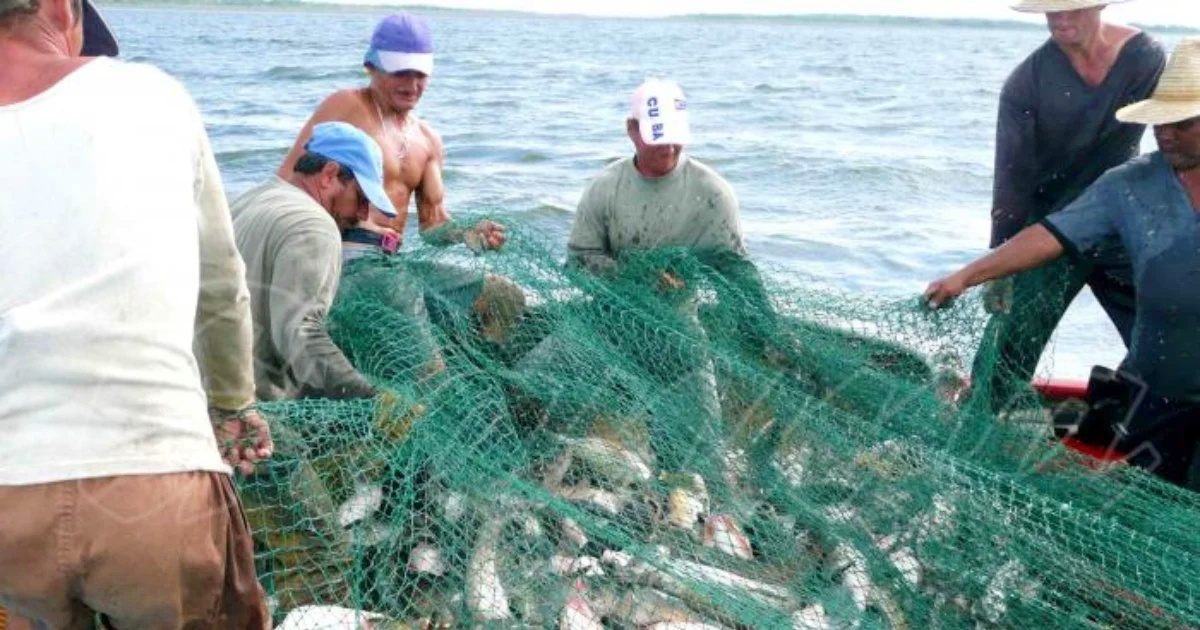
The Cuban government has announced a new initiative to promote sustainable fishing and protect biodiversity along its coasts, in collaboration with the Food and Agriculture Organization of the United Nations (FAO).
The project, which has funding of 1.3 million dollars provided by the Global Environment Facility (GEF), was presented this Tuesday by state media as an important step towards environmental sustainability in the fishing sector.
The Conpescas Guacanayabo project, which is part of this initiative, aims to strengthen the capabilities of the Fisheries Research Center (CIP) and the technical departments of fishing companies operating in the Gulf of Guacanayabo, on the southeastern coast of the provinces of Granma, Camagüey, and Las Tunas.
Among the objectives stated by the FAO in a statement published on its website is the sustainable management of marine resources and the promotion of fishing practices that are environmentally friendly in Cuba.
However, in a country where access to basic foods - including fish - is limited and where the population faces an acute food crisis, the question arises of how much the citizens will really benefit from that investment of 1.3 million dollars.
While the Cuban government celebrates this project as a step towards sustainability, the reality is that the average Cuban barely has access to seafood due to shortages and high prices, exacerbated by an inefficient distribution system.
The initiative includes the acquisition of sophisticated equipment such as georeferencing systems, tools for measuring physical-chemical and oceanographic parameters, and diving gear for marine studies.
Although these resources are vital for research and long-term sustainability, it is legitimate to question whether these investments will have a tangible impact on Cubans' access to more fish or a more diversified diet.
The project also aims to strengthen the capabilities of laboratories with microscopes, scales, reagents, and refrigeration equipment, all aimed at improving the surveillance and control of aquatic diseases, as well as the quality of marine resources.
The question is, how effective will this investment be in improving the quality of life for Cubans, when the majority still cannot access these resources due to restrictions and widespread scarcity?
Cuba was one of the founding nations of the FAO in 1945 and has maintained a close relationship with the organization, especially since it established an official representation in Havana in 1978.
The areas of cooperation have encompassed agro-industry, sustainable agriculture, social inclusion, aquaculture, and climate change. However, despite these projects and collaborations, the reality on the tables of Cubans has changed little.
The push for more sustainable fishing is undoubtedly a commendable goal, but it is imperative that the Cuban authorities ask themselves how these efforts can translate into real and tangible benefits for a population that continues to await solutions to the food crisis they face day after day.
Environmental sustainability should not be divorced from social sustainability, and the success of this project must ultimately be measured by the direct impact it has on Cubans' access to essential foods such as fish.
What do you think?
COMMENTFiled under: